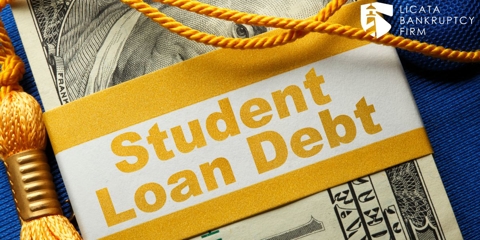How Bankruptcy Stops Foreclosure
Filing for bankruptcy stops the foreclosure process and give you the time that you need to catch up on payments. Our Springfield foreclosure defense attorneys can help you explore your options in filing for either Chapter 7 bankruptcy or Chapter 13 bankruptcy.
When you file for bankruptcy, the court promptly issues the automatic stay, an order that halts all collections actions. The automatic stay will temporarily stop any pending or ongoing foreclosure. It will also prevent any collections lawsuits, creditor harassment, wage garnishments, or repossessions. The freeze remains in effect until your bankruptcy filing is completed.
Filing for Chapter 13 bankruptcy can give you as many as 5 years to catch up on your mortgage. During this time, your debt obligations will be consolidated into a single monthly payment. So long as you make this payment, the automatic stay will continue to prevent foreclosure, giving you time to reorganize finances and resolve your mortgage debt.
Chapter 7 bankruptcy can also prevent foreclosure, though its protection is more temporary. Filing for involves undergoing a liquidation process, but homestead exemptions allow many filers to safeguard their homes.
Filers who complete a Chapter 7 bankruptcy or Chapter 13 bankruptcy will generally be entitled to discharge unsecured debts at the conclusion of either process. Unsecured debts include credit card debt, medical bills, personal loans, and unpaid utility bills.
It is important to note that you cannot discharge missed mortgage payments to avoid foreclosure following a bankruptcy, but the ability to eliminate other types of significant debt can give you the financial flexibility you need to catch up on any mortgage deficiencies.
Our bankruptcy team can help you explore your options throughout the process and advise on strategies that will help bring you current.
Bankruptcy cannot stop foreclosure after a sale has already taken place. However, filing for bankruptcy can help you resolve any deficiency judgments or related lawsuits.
Same-Day Appointments Available
In many cases, foreclosures can take weeks or even months after the 120-day mark to come together. Other times, foreclosures can happen frighteningly fast, giving you little time to respond and protect your home.
In some cases, you may only have days to act before a sale precludes relief through bankruptcy. Licata Bankruptcy Firm PC offers same-day appointments and can aggressively move to help you file and stop an imminent foreclosure sale.
Our bankruptcy team is compassionate to the stress and uncertainty that comes with the threat of foreclosure. We are committed to helping you leverage bankruptcy’s tools to save your home and live a life free of debt.
Our Springfield foreclosure defense lawyers have substantial experience using the automatic stay to efficiently stop creditor actions and save homes. We will work with you to identify what type of bankruptcy you qualify for and how filing can assist you in eliminating debt and reorganizing finances.







